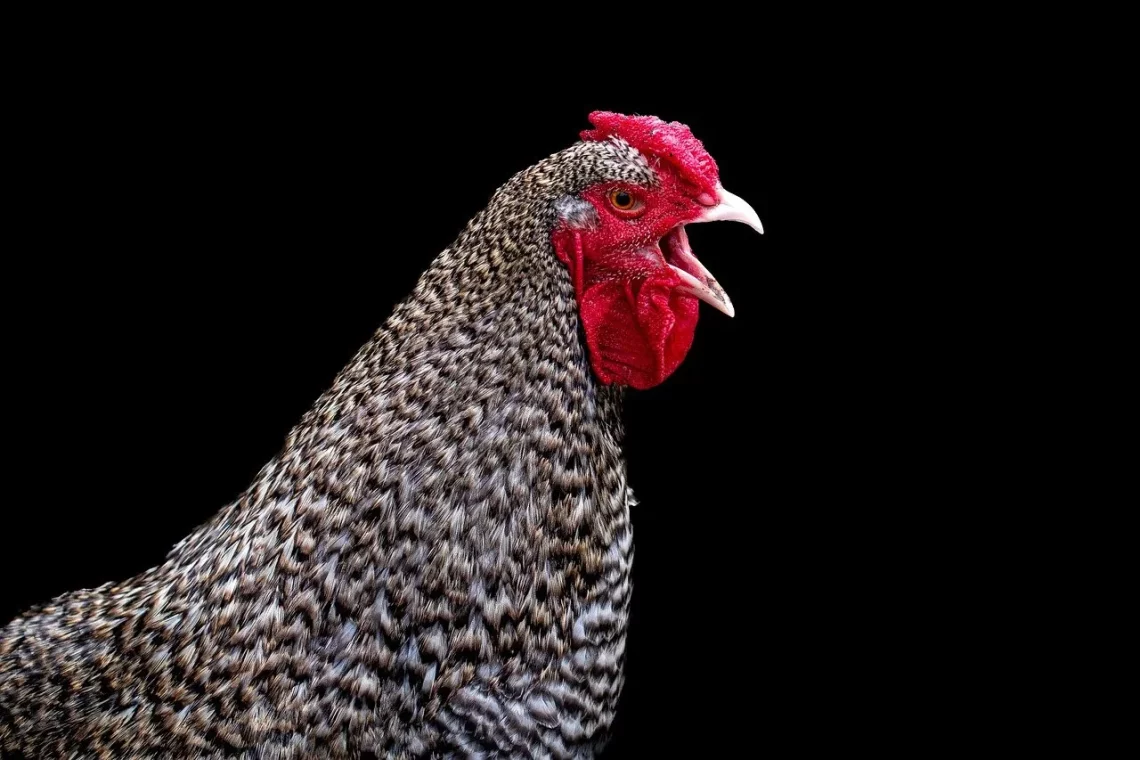
Understanding the Sudden Death of Chickens: Causes and Solutions
The sudden death of chickens can be a distressing experience for any poultry keeper. These seemingly robust birds can exhibit unexpected health issues that lead to their untimely demise. Understanding the underlying factors contributing to these incidents is crucial for maintaining a healthy flock and ensuring the well-being of your chickens. While the causes may vary, they often stem from a combination of environmental factors, nutritional deficiencies, and diseases that can strike swiftly, leaving owners perplexed and concerned.
Poultry management requires vigilance, as chickens are susceptible to a range of health problems that can escalate quickly. The sudden loss of a bird can disrupt the harmony of a flock, leading to stress among the remaining chickens and further complicating the situation. Therefore, it is essential to be proactive in identifying potential threats to your flock’s health. This article delves into several key aspects that can contribute to the sudden death of chickens, offering insights and solutions to help poultry keepers mitigate risks and promote a healthier environment for their birds.
Common Diseases Affecting Chickens
Chickens are vulnerable to numerous diseases that can lead to sudden death. Understanding these illnesses is vital for effective prevention and management. Some of the most common diseases include Newcastle disease, avian influenza, and coccidiosis. These diseases can manifest in various ways, often with little warning, making early detection challenging.
Newcastle disease is a viral infection that affects the respiratory and nervous systems of birds. Symptoms may include respiratory distress, nervous signs, and a drop in egg production. The sudden onset of these symptoms can lead to rapid fatalities within a flock. Effective biosecurity measures, such as isolating new birds and maintaining cleanliness in the coop, are essential to prevent outbreaks.
Avian influenza is another serious disease that can have severe consequences for chickens. This viral infection can spread rapidly among flocks, often leading to high mortality rates. Symptoms may include swelling of the head, coughing, and a significant decrease in egg production. Vaccination and strict biosecurity protocols can help protect flocks from this devastating disease.
Coccidiosis, caused by protozoan parasites, is a common intestinal disease in chickens. It often leads to sudden deaths, particularly in young birds. Symptoms include lethargy, diarrhea, and loss of appetite. Ensuring good hygiene and providing a balanced diet can help mitigate the risk of coccidiosis outbreaks.
Regular health checks and monitoring for any unusual behavior or symptoms in your chickens can aid in the early detection of these diseases. Keeping a close eye on flock health and implementing preventive measures can significantly reduce the risk of sudden deaths due to disease.
Nutritional Deficiencies and Their Consequences
The diet of chickens plays a crucial role in their overall health and well-being. Nutritional deficiencies can lead to various health issues, including sudden death. Key nutrients, such as vitamins, minerals, and proteins, are essential for maintaining a robust immune system and ensuring proper bodily functions.
For instance, a deficiency in vitamin E can result in encephalomalacia, commonly known as “crazy chick disease,” which affects the nervous system. Affected birds may exhibit signs of weakness, lack of coordination, and, in severe cases, sudden death. Providing a balanced diet that includes sufficient levels of vitamins and minerals can help prevent such deficiencies.
Additionally, calcium is vital for laying hens, as it supports egg production and bone health. Inadequate calcium intake can lead to weak bones and increased susceptibility to fractures, which can ultimately result in sudden death. Ensuring that your hens have access to calcium supplements, such as crushed oyster shells, can help mitigate this risk.
Furthermore, protein is essential for growth and development in younger chickens. A lack of protein can lead to stunted growth and a weakened immune system, making birds more susceptible to diseases and infections. Providing a high-quality feed that meets the nutritional needs of your flock is crucial for preventing nutritional deficiencies.
Regularly assessing the dietary needs of your chickens and making necessary adjustments can help promote their health and reduce the risk of sudden deaths caused by nutritional issues.
Environmental Factors and Stress
Environmental conditions play a significant role in the health of chickens. Exposure to extreme temperatures, poor ventilation, and overcrowding can lead to stress and health problems that may result in sudden death. Chickens are sensitive to temperature changes, and extreme heat or cold can have detrimental effects on their well-being.
Heat stress is particularly concerning in warmer climates. When temperatures rise, chickens can become dehydrated and lethargic, leading to heatstroke, which can be fatal if not addressed promptly. Implementing measures such as providing ample shade, ensuring access to fresh water, and using fans or misters can help alleviate heat stress in your flock.
Conversely, cold stress can also pose a threat to chickens. Inadequate shelter and insulation can lead to hypothermia, especially in young or weakened birds. Providing a warm, dry environment and ensuring proper bedding can help protect your chickens from the harsh effects of cold weather.
Overcrowding is another environmental factor that can lead to stress and aggression among chickens. Inadequate space can result in pecking, fighting, and the spread of diseases, all of which can contribute to sudden deaths. Ensuring that your coop offers enough space for each bird and promoting a harmonious living environment are essential for flock health.
Regularly assessing the living conditions of your chickens and addressing any environmental stressors can have a significant impact on their overall well-being and reduce the risk of sudden deaths.
Preventive Measures for Flock Health
Taking proactive steps to maintain the health of your flock is essential for preventing sudden deaths among chickens. Implementing a comprehensive health management plan that includes regular veterinary check-ups, vaccination protocols, and biosecurity measures can significantly reduce the risk of disease outbreaks and health issues.
Establishing a routine for health monitoring can help you identify any potential problems early on. Observing behaviors, feeding habits, and overall physical condition can provide valuable insights into your flock’s health. Keeping records of vaccinations, treatments, and any incidents of illness can also aid in managing flock health effectively.
Biosecurity is paramount in preventing the introduction of diseases into your flock. This includes isolating new birds for a period before introducing them to the main flock, practicing good hygiene, and minimizing contact with wild birds and other animals that may carry diseases.
Furthermore, educating yourself about the specific health needs of your chicken breed can help you tailor your management practices to their requirements. Each breed may have unique vulnerabilities, and understanding these can enhance your ability to care for your birds.
Incorporating these preventive measures into your poultry management practices can create a healthier environment for your flock and significantly decrease the likelihood of sudden deaths.
In conclusion, the sudden death of chickens can stem from various factors, including diseases, nutritional deficiencies, environmental stressors, and inadequate management practices. By understanding these aspects and implementing preventive measures, poultry keepers can enhance the health and well-being of their flocks.
**Disclaimer: This article is for informational purposes only and should not be considered medical advice. For any health-related concerns, please consult a qualified veterinarian.**




